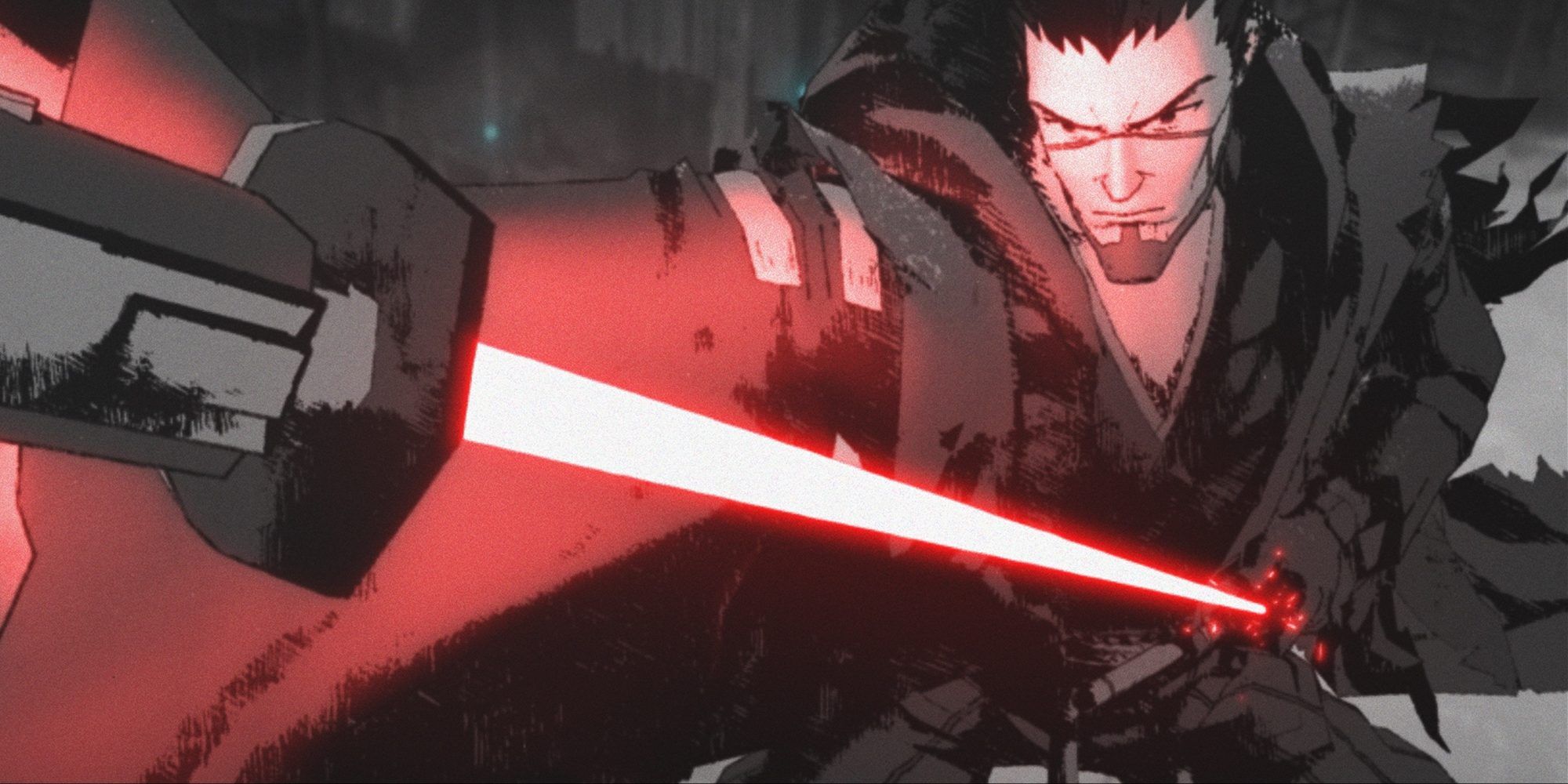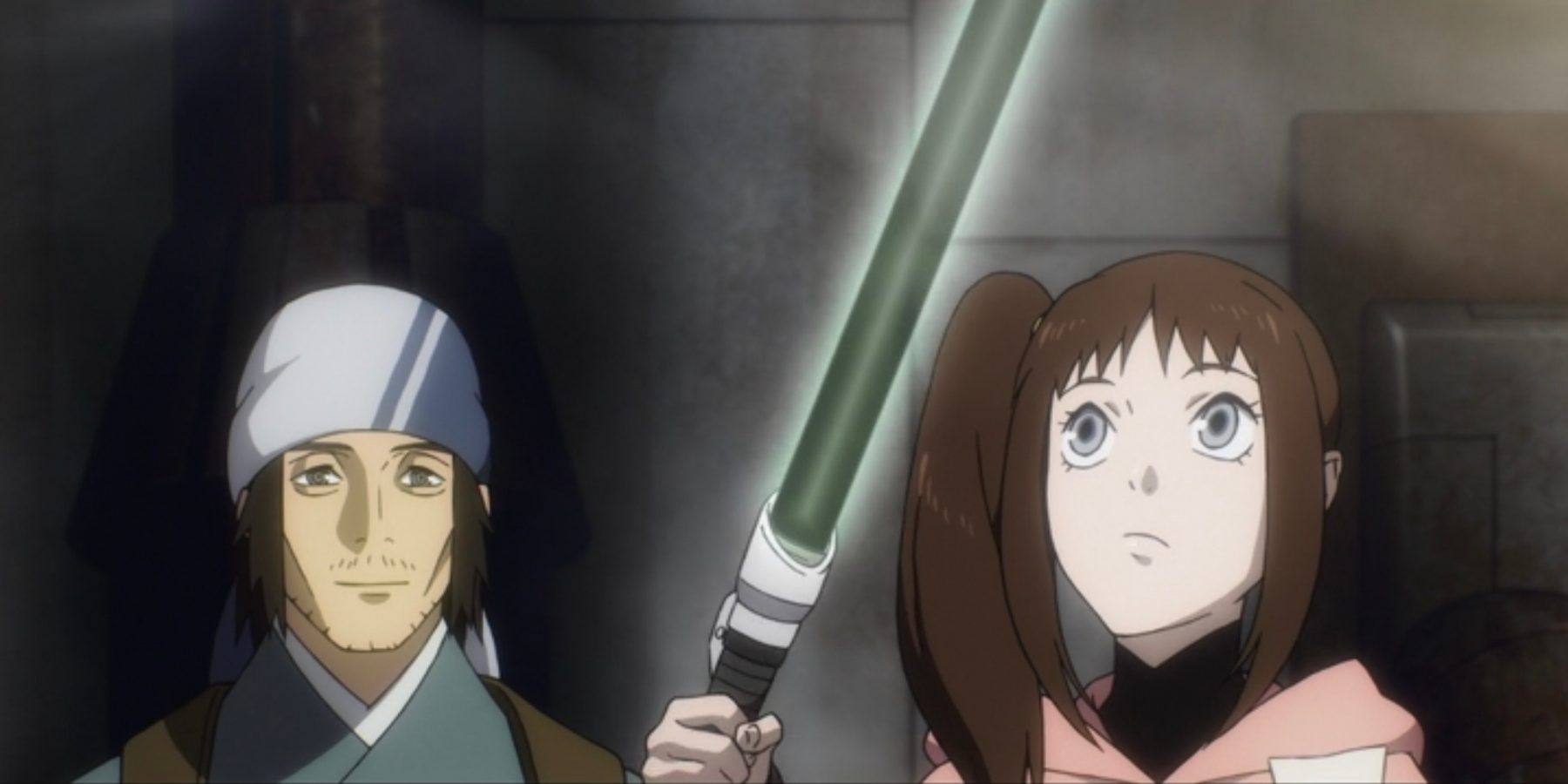It's easy to forget in today's IP-dominated pop-cultural landscape that the monolithic franchise known as Star Wars started out as little more than an endearing oddity; a pulpy science-fiction story that adoringly blended ideas from action-adventure serials of the '30s and '40s, classic American Westerns and Japanese samurai films. The resulting film was the hyper-idiosyncratic vision of one George Lucas.
In 1977, Lucas wasn't burdened by the idea of pleasing fans or delivering a four-quadrant blockbuster. He simply made the film he wanted to make, and the rest is history. As Star Wars transitions to television as a more permanent medium, it risks losing a lot in translation. The franchise has always been decidedly filmic in nature, grandiose in scale and full of overwhelming emotion. But one television project from the Star Wars universe highlights everything the franchise could and should be by hearkening back to Lucas' original vision in a startlingly effective fashion: Star Wars: Visions.
Released on Disney+ in September 2021, Visions was an ambitious anthology project that saw Lucasfilm partnering with seven different Japanese animation studios to deliver a series of nine animated short films, all set within the Star Wars universe. The results were varied and breathtaking works that felt wholly original and full of unbridled passion, as Lucasfilm essentially gave each individual filmmaker completely free rein in terms of story and tone. Entirely free of the weight of the canonical narrative of the saga as a whole, these shorts were able to probe deeper into not only the influences that make up Star Wars but also the thematic and philosophical concepts at the heart of Star Wars storytelling in profound ways.
Not only are the shorts works of Japanese filmmakers and animators, with many channeling the overt influence of Akira Kurosawa's films such as The Hidden Fortress, Seven Samurai or Yojimbo, all of which so directly affected Lucas as a filmmaker, but they also ring the truest to Lucas' driving mantra of the saga as a whole: "It's like poetry, it rhymes." The majority of the shorts do not feature characters or locations audiences would recognize, but their stories, conflicts and themes do consciously create rhyming stanzas with other Star Wars works.
Takanobu Mizuno's The Duel recreates the aesthetics of Kurosawa's early works, while its titular duel features direct visual quotations of both The Phantom Menace and Revenge of the Sith's respective final battles. Hiroyuki Imaishi's The Twins thematically explores the idea of duality as so often explored in Lucas' storytelling and features shots deliberately echoing The Last Jedi. Eunyoung Choi's Akakiri features characters quite literally pulled straight out of The Hidden Fortress and is rooted in an exploration of how fear of loss can force good men into evil deeds, with mirrored Revenge of the Sith and Return of the Jedi shots to back it up.
If anything, freeing these shorts from the narrative obligations of Star Wars storytelling opened up the filmmakers and allowed them to more meaningfully and effectively express their adoration for Star Wars storytelling. So often, the live-action Disney+ Star Wars shows such as The Mandalorian and The Book of Boba Fett feel so inhibited by their own narrative confines. The Book of Boba Fett quite literally had to break the back of its own narrative structure, fracturing it into two dissonant time periods, just to justify the story it was telling in that era of the greater Star Wars timeline. Visions is decidedly unburdened by this, much in the same way Lucas was when he began, and it is all the better for it.
The other unbelievably satisfying element of Visions is the sheer thrill of getting to see filmmakers deliver such endearingly idiosyncratic work in the Star Wars universe. George Lucas never batted an eye at audiences not receiving his work well, the prequels are abundant evidence of that. When the entire world was screaming out for more of the same, Lucas swerved entirely and remained unashamedly devoted to telling the stories he wanted to tell. Since the Disney acquisition, Star Wars has been in much more gentle hands, as Disney and Lucasfilm have both been (understandably) eager to prove their merit as shepherds of the franchise and please fans. But works such as The Force Awakens or even the finale of The Mandalorian's second season do feel like undeniably calculated works of appeasement, whose passion is winning fans over, not in delivering the fully realized vision of a singular filmmaker.
In this way and many others, Visions is a rarity. Much like Rian Johnson's sublime The Last Jedi, it is a work of pure storytelling that feels like an authentic extension of Lucas' experimental, poetic cinema. If the future of Star Wars is destined to be television, here's hoping that future works feature the boldness and originality of Star Wars: Visions.
The first season of Star Wars: Visions is available to stream on Disney+.





